Cardinal Academy serves 46 students in grades 9-12.
The student:teacher ratio of 8:1 is lower than the Idaho state level of 17:1.
Minority enrollment is 39% of the student body (majority Hispanic), which is higher than the Idaho state average of 27% (majority Hispanic).
Quick Stats (2025)
- School Type: Alternative school / Charter School
- Grades: 9-12
- Enrollment: 46 students
- Student:Teacher Ratio: 8:1
- Minority Enrollment: 39%
- Graduation Rate: 21-39% (Btm 50% in ID)
- Source: National Center for Education Statistics (NCES), ID Dept. of Education
Top Rankings
Cardinal Academy ranks among the top 20% of public schools in Idaho for:
Category
Attribute
Diversity
Community Size
Student Attention
School Overview
Cardinal Academy's student population of 46 students has stayed relatively flat over five school years.
The teacher population of 6 teachers has grown by 20% over five school years.
School Type
Grades Offered
Grades 9-12
Total Students
46 students
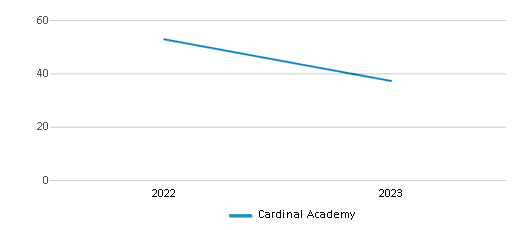
Gender %
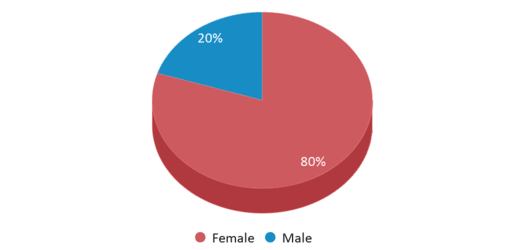
Total Classroom Teachers
6 teachers
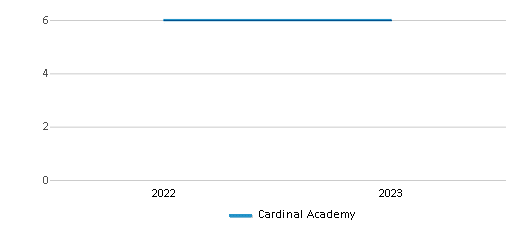
Students by Grade
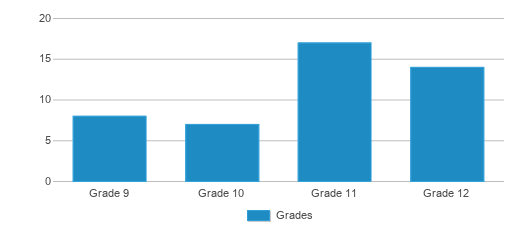
School Calendar
School Rankings
The diversity score of Cardinal Academy is 0.57, which is more than the diversity score at state average of 0.43. The school's diversity has stayed relatively flat over five school years.
Student : Teacher Ratio
8:1
17:1
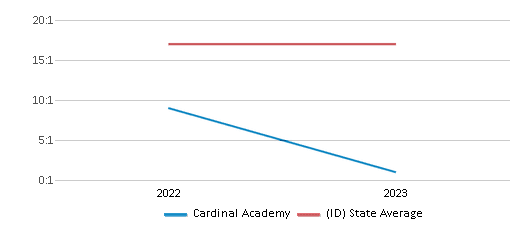
American Indian
2%
1%
Asian
n/a
1%
Hispanic
24%
20%
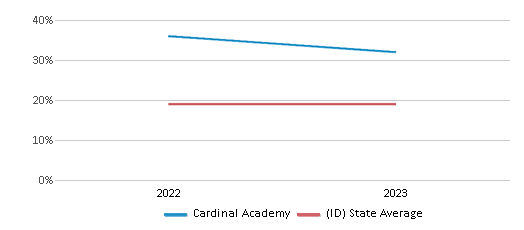
Black
9%
1%
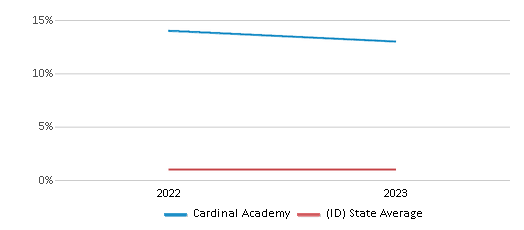
White
61%
73%
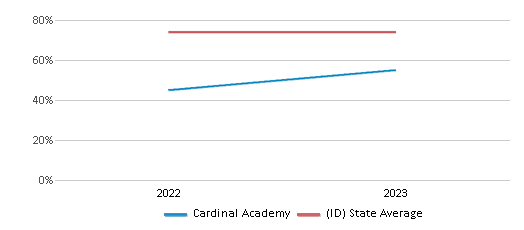
Hawaiian
n/a
n/a
Two or more races
4%
4%
All Ethnic Groups
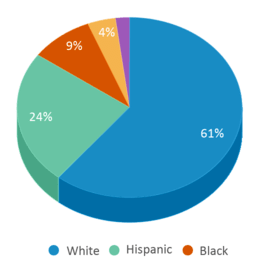
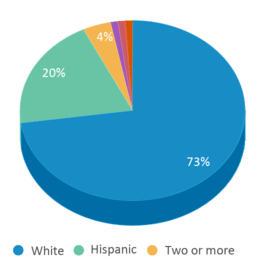
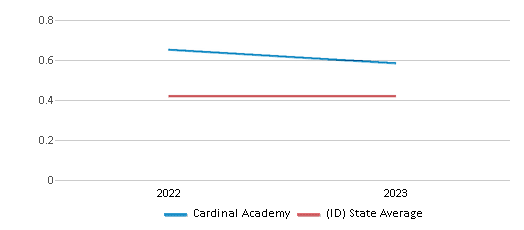
Graduation Rate
21-39%
80%
School Statewide Testing
School District Name
Source: National Center for Education Statistics (NCES), ID Dept. of Education
School Notes
- Cardinal Academy will provide an academic program in a supportive environment where students are prepared for parenthood, college, career and life. Cardinal Academy Public Charter High School is a high school and specialty program of opportunity focusing on pregnant and parenting teens and young adults, females and males, ages 14 to 21, grades 9 through 12. The school is founded by veteran academic and career counselor, Emily Bergstrom, and veteran educator, Deborah Hedden-Nicely, who have almost 30 years combined experience with pregnant and parenting teens and young adults in Boise. The founders will take a comprehensive approach of educating the whole person by providing students with a strong and relevant educational experienceandpartnering with The Salvation Army, Boise Corps and other community partners, to provide on-campus wrap-around services necessary to support pregnant and parenting students staying in school. This will enable students to continue to pursue the completion of a high school education through graduation and beyond.
Profile last updated: 02/09/2025
Frequently Asked Questions
What is the graduation rate of Cardinal Academy?
The graduation rate of Cardinal Academy is 21-39%, which is lower than the Idaho state average of 80%.
How many students attend Cardinal Academy?
46 students attend Cardinal Academy.
What is the racial composition of the student body?
61% of Cardinal Academy students are White, 24% of students are Hispanic, 9% of students are Black, 4% of students are Two or more races, and 2% of students are American Indian.
What is the student:teacher ratio of Cardinal Academy?
Cardinal Academy has a student ration of 8:1, which is lower than the Idaho state average of 17:1.
What grades does Cardinal Academy offer ?
Cardinal Academy offers enrollment in grades 9-12
What school district is Cardinal Academy part of?
Cardinal Academy is part of Cardinal Academy Incorporated School District.
In what neighborhood is Cardinal Academy located?
Cardinal Academy is located in the West Boise neighborhood of Boise, ID. There are 21 other public schools located in West Boise.
School Reviews
Review Cardinal Academy. Reviews should be a few sentences in length. Please include any comments on:
- Quality of academic programs, teachers, and facilities
- Availability of music, art, sports and other extracurricular activities
Recent Articles

What Is A Charter School?
Explore the world of charter schools in this comprehensive guide. Learn about their history, how they operate, and the pros and cons of this educational innovation. Discover key facts about charter schools, including admission policies, demographics, and funding, as well as what to look for when considering a charter school for your child.

10 Reasons Why High School Sports Benefit Students
Discover the 10 compelling reasons why high school sports are beneficial for students. This comprehensive article explores how athletics enhance academic performance, foster personal growth, and develop crucial life skills. From improved fitness and time management to leadership development and community representation, learn why participating in high school sports can be a game-changer for students' overall success and well-being.

February 05, 2025
Understanding the U.S. Department of Education: Structure, Impact, and EvolutionWe explore how the Department of Education shapes American education, from its cabinet-level leadership to its impact on millions of students, written for general audiences seeking clarity on this vital institution.









